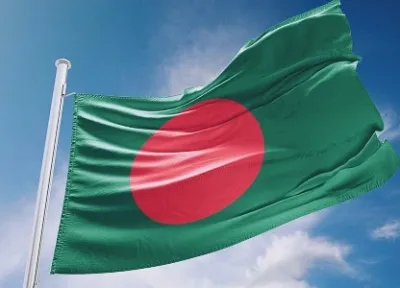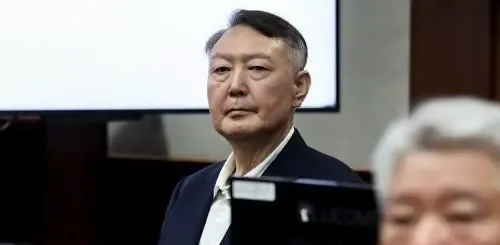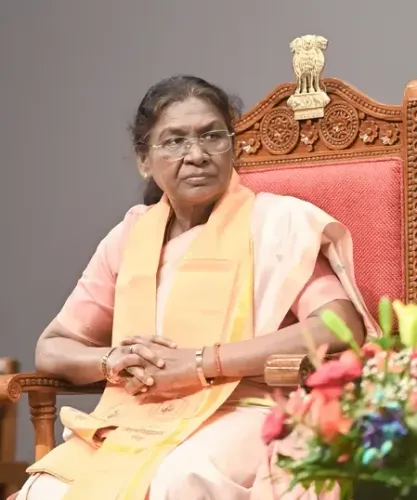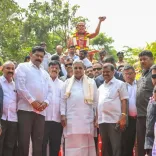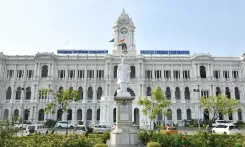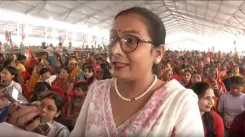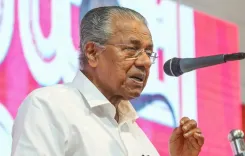How is Kuwait Celebrating 250 Years of Friendship with India?
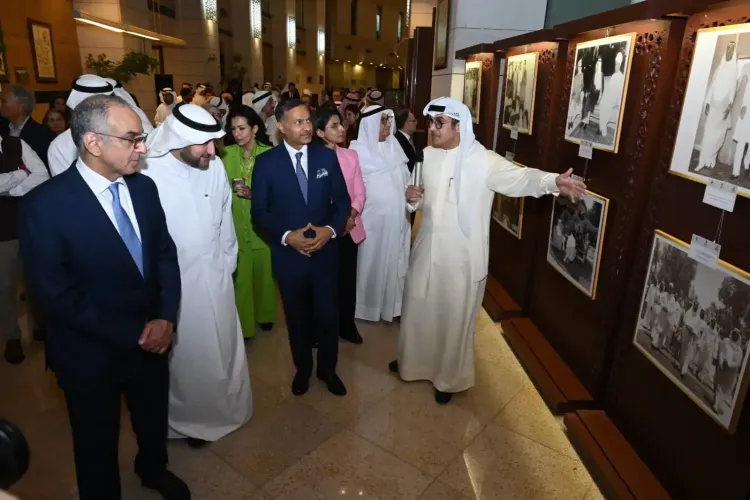
Synopsis
Key Takeaways
- Exhibition highlights 250-year friendship
- Showcases rare cultural artefacts
- Features panel discussions with historical insights
- Organized by key cultural institutions
- Strengthens economic and cultural ties
Kuwait City, May 20 (NationPress) The Indian Ambassador to Kuwait, Adarsh Swaika, along with the Director General of Kuwait's National Center for Culture, Arts and Letters (NCCAL), Mohammad Al-Jassar, officially opened a five-day exhibition and talk series titled 'Rihla-e-Dosti: 250 Years of India-Kuwait Friendship' on Monday at the National Library in Kuwait City.
This exhibition features a collection of rare artefacts, manuscripts, Indian currency, books, stamps, and photographs showcasing leaders from both India and Kuwait.
During the inauguration of the Rihla-e-Dosti exhibition, both Ambassador Adarsh Swaika and DG NCCAL emphasized the long-standing and rich history of India-Kuwait relations. Fahad AbdulJaleel, President of the Kuwait Heritage Society, played a key role as the main curator and contributor to the exhibition, as highlighted by the Embassy of India, Kuwait, on X.
The event was collaboratively organized with NCCAL, supported by the Kuwait Heritage Society, the National Archives of India, the External Publicity Division, the Ministry of External Affairs, and the Ministry of Information and Broadcasting, India.
A booklet featuring selected photographs was also unveiled during the exhibition's opening.
A panel discussion featured notable merchant families from Kuwait with historical ties to India. Ibrahim Abdullatif Al-Ibrahim, Suliman Abdulmohsen Al-Khames, and Abdullatif Abdulrazza shared anecdotes about their family connections to India from the 19th and early 20th centuries.
Speaking at the exhibition, DG NCCAL Mohammad Al-Jassar remarked that the relationship with India serves as a unique example of profound understanding and cultural exchange.
He underscored the importance of culture and the arts in enhancing relations among people.
Recognizing the growing economic connections between the two nations, he pointed out that in 1775, a Kuwaiti ship first docked at Indian ports, leading to the establishment of a comprehensive trade transport network between the West and the East, making Kuwait an essential trade hub.
Numerous Kuwaiti families resided near Indian ports and engaged in the export of critical goods to the Arabian Gulf ports, such as food and timber, he added.
Meanwhile, Ambassador Adarsh Swaika reiterated that the bilateral relations between the two countries are enduring and strong, praising the commercial exchanges that began in the late 18th century when a Kuwaiti vessel carrying dates, houses, and pearls arrived at Indian ports.
The ambassador remarked that this event, co-organized by the Indian Embassy in Kuwait and the Kuwait Heritage Society, highlights the strengthened ties and fosters awareness among the youth of both nations regarding their shared rich history.
The exhibition includes documents regarding trade at Indian ports and Kuwaiti literature about pearls printed in Arabic or local dialects in India, alongside other significant items.

